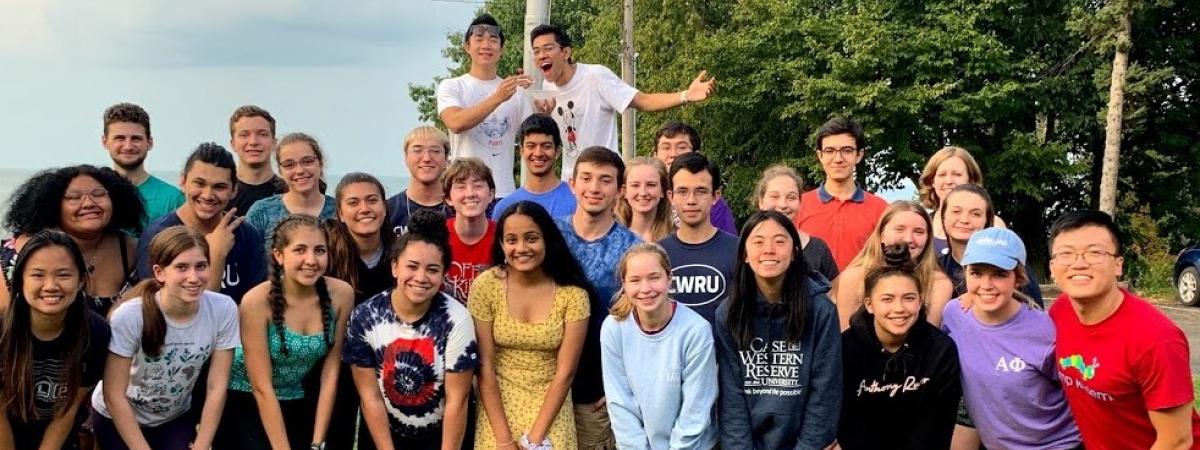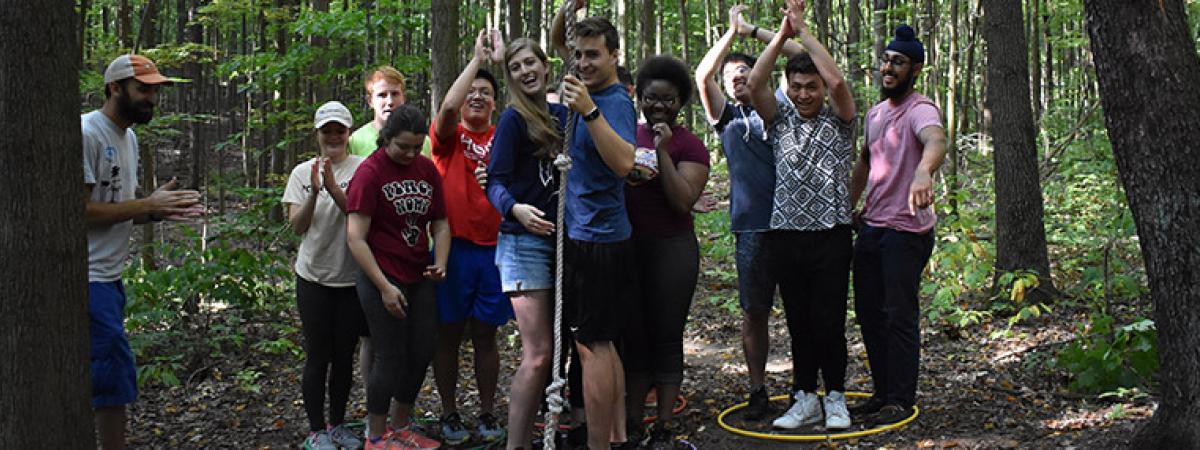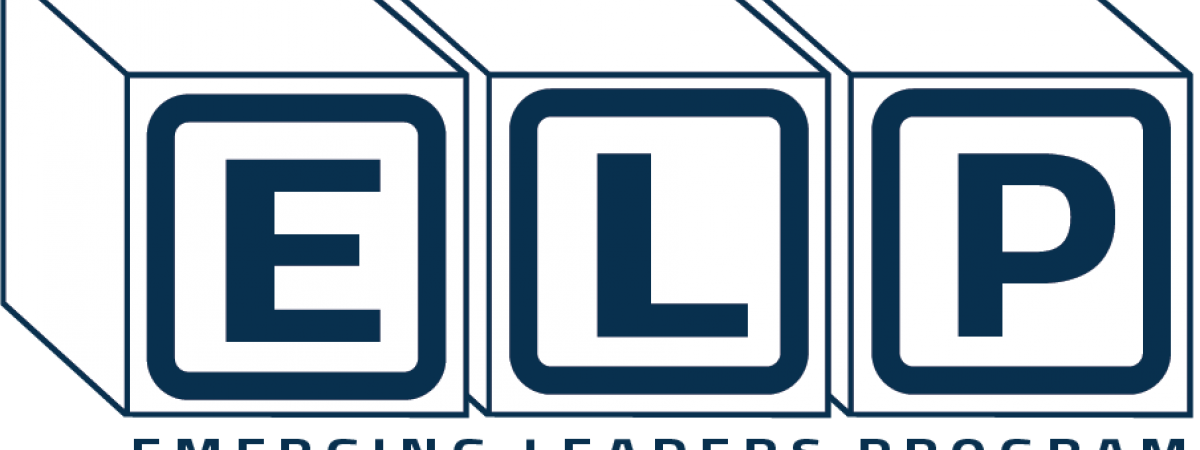Learn about yourself & your ability to lead.
The Emerging Leaders Program (ELP) is a one-semester program specifically designed to provide first-year students the opportunity to develop their leadership skills, build relationships across campus, and become engaged in the campus community. ELP develops leaders with the confidence, ability, and passion to be active and engaged leaders in their communities, as well as the foundation of leadership skills essential for lifelong leadership engagement. Participants learn about leadership and student organizations and graduate empowered to make a positive impact on our campus community.
We believe that students can impact our campus community in profound ways and we strive to provide the learning opportunities, support and institutional knowledge to make that happen!
Are You an Emerging Leader?
Emerging Leaders are active and engaged first year students who want to learn more about themselves and the campus community. Both inexperienced and experienced student leaders participate and benefit from the Emerging Leaders Program.
Personal Discovery
- Identify your strengths
- Establish your values
- Pinpoint your passions and purpose
Knowledge
- Develop leadership skills
- Cultivate diversity and inclusion
- Build group development and team-building skills
Relationships
- Benefit from mentorship
- Connect with other student leaders
- Become a part of a community
Agency
- Determine a vision for your leadership experience at CWRU
- Move forward with confidence in your abilities as a leader
- Leave with an action plan to successfully carry out your intentions
"You get connected and are accepted into a community who cares. You are never told you can't lead because of who you are. You are instead encouraged to be the best at what you love and develop your personal strengths, find your own sense of leadership."
"You begin the program as one person, you end the program as an entirely new person who is more confident and knows so much more about themselves."
"ELP enabled me to recognize my strengths in a way that I hadn't ever before. I learned a lot about myself in the process, and was able to develop skills that I didn't know I had. The StrengthsQuest analysis paired with the many workshops and faculty interactions provided me with a strong base with which to lead in the CWRU community in the future."
"The only thing you could lose by participating in this program is time, and even so, it's only a loss if you don't actually participate. Otherwise, it's a transaction, and a good one at that. For a small amount of time here and there, you get valuable insight and connections, and possibly a changed outlook on life."
"ELP has helped me meet people from all around campus. I have also become more confident in using my leadership skills!"
Emerging Leaders have gone on to serve as...
- Undergraduate Student Government Presidents and representatives
- Orientation Leaders & Executive Board Members
- Class officers and class presidents
- University Program Board presidents and members
- Fraternity/Sorority Presidents
- the Spartan Mascot
- USG-recognized student organization officers
- Center for Civic Engagement and Learning Scholars
- Resident Assistants & Executive leaders on RHA
- Founding members for organizations such as Dance Marathon and the 300 Club
- Founding members of fraternities & sororities on campus
- Planned activities within the Academic Integrity Board
Well, maybe ELP can't take all the credit, but research shows that ELP graduates...
- Have a higher combined Sophomore, Junior and Senior GPA (3.39 for participants vs. 3.25 for non-participants)
- Are more likely to serve as leaders in USG recognized student organizations (27% vs. 16 % for non- participants)
- Are more likely to have been a leader in an organization during college (80% vs. 30% for non-participants)
- Are more likely than their peers to have communicated regularly with their professors (90% vs. 55% for non-participants)
- Are more likely than their peers to say staff recognize their achievements (100% vs. 70% for non-participants)
- Were more likely to have been offered and accepted of full time employment at graduation (64% vs. 45% for non-participants)
- Were more likely to have a starting salary greater than $60,000 at graduation (56% vs. 33% for non-participants)
- 60% of ELPers participated in an internship during college
ELP Curriculum
To gain the full benefit of the Emerging Leaders Program, participation in all events, discussions and projects is essential. Events take place throughout the Fall 2025 semester! All dates and times are tentative.
ELP Welcome Mixer
We will kick off the program and introduce you to the upper class facilitators who are excited to help you on your leadership journey. This will take place on Friday, September 12 from 3-5 PM.
ELP Retreat
The year's retreat will take place on Saturday, September 27th. This experience is the highlight for many leaders and is your chance to interact with and meet new students in a small group atmosphere.
ELP Team Sessions (Required)
We will have three ELP team sessions that will give you an opportunity to build on the connections you made with your small group and the ELP community at retreat while learning more about yourself and the concept of leadership. These sessions are highly engaging and lively.
Organizational Membership
Each ELPer is expected to become an active member of a campus organization. This organization should meet on a regular basis (at least every other week) and provide students with the opportunity to become involved in a project or event. ELPers may participate in Media Board, RHA, UPB, USG, hall council or a USG-recognized club. There is also the opportunity to join a fraternity during the fall semester.
ELP Capstone Presentation
At the end of the semester, you will complete a capstone project that will serve as an opportunity for reflection on what you have learned over the course of your experience in Emerging Leaders Program. Information as to how this year's capstone projects will be presented is forthcoming!
Graduation
All ELPers who have successfully completed the program requirements will partake in the graduation ceremony where they will be recognized for their achievements. Administrators and University friends will be invited to congratulate you on your success on December 5th from 3 to 5 p.m. in the Thwing Ballroom.





